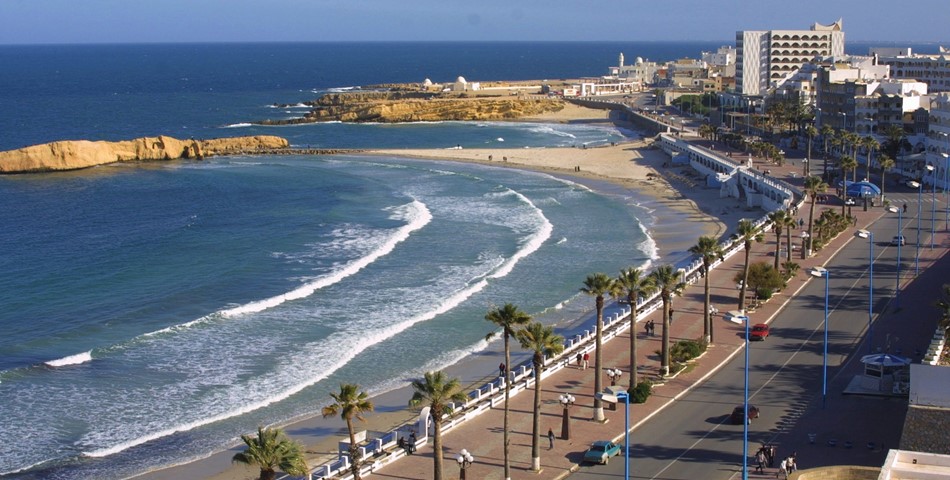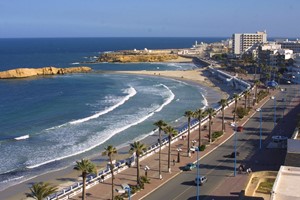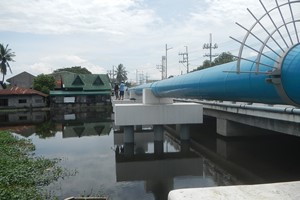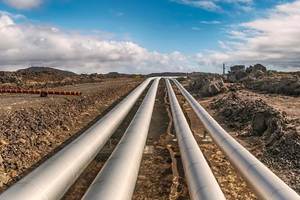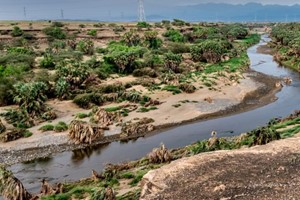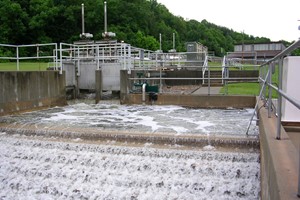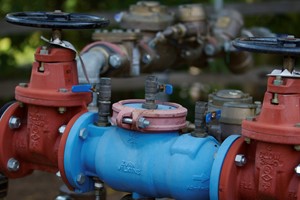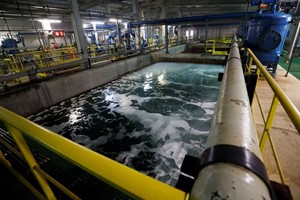The Middle East is one of the most water scarce regions in the world; and Saudi Arabia, the largest arid country in the Arabian Peninsula, has limited natural sources of water. The Kingdom is projected to be among the ten most water-stressed countries in the world by 2040.
It currently relies heavily on desalination plants which produce roughly 18 percent of the world's desalinated water. The sharp decline in the oil price in mid-2014 contributed to the current re-thinking of its oil-based economic model. The Kingdom's economic strategy is set out in the Saudi Vision 2030 which was announced in April 2016 by Deputy Crown Prince Mohammed bin Salman.
The Saudi Vision 2030 is an ambitious plan to end the Kingdom's dependence on oil by 2020, privatize government assets, and improve economic and environmental sustainability. As part of this ambitious agenda, the Saudi Government has announced intentions to privatize the water sector, to help meet future demand, which is estimated to grow roughly five percent per year until 2030.
Additionally, renewable energy initiatives, such as solar-power, are rapidly emerging within the region, and Saudi Arabia intends to be a world leader in the clean energy market. These prospects can open up lucrative opportunities for international investors, but it remains to be seen whether these reforms can be implemented. At the recent Water Investment Forum in Riyadh, the Kingdom announced plans to privatize the state-owned company, Saline Water Conversion Corporation (SWCC), to attract private investment to fill the country's capital gap of more than USD53 billion.
The Minister of Environment, Water and Agriculture, Abdul Rahman Al-Fahdli, reported that the privatization of SWCC aims to double its production over the next 15 years to meet rising demand for water. According to Global Wire Intel, the challenge for the Kingdom is 'to roll out projects as fast as possible, while simultaneously creating the institutional structures which are required to make the proposition attractive to private investors'.
Many Middle Eastern governments subsidize resources to provide social protection for their population and share national wealth. These subsidy schemes are generally understood as an implicit "social contract" between the ruling political elite and citizens. As reported in a previous Strategic Weekly Analysis, Saudi Arabians generally pay roughly USD0.03 per cubic meter of water due to a generous 99.76 percent water subsidy. In an attempt to decrease water consumption, the Kingdom cut utility subsidies last year; resulting in a 500 percent water price increase and public backlash, which contributed to the dismissal of the Water and Electricity Minister, Abdullah Al Hasin.
The generous water subsidies have resulted in an extraordinarily high water consumption which exceeds over 200 liters per capita per day. An increasing population, which is predicted to grow to 39 million by 2030, will lead to an increased demand for water. Furthermore, 28.5 percent of the population is under 15 years old, and as this cohort reaches working age, economic opportunities must also be created. Consequently, Saudi Arabia must redefine the social contract to promote sustainable water consumption while creating opportunities for the next generation of Saudi Arabians.
The Kingdom must also build more desalination plants in the face of a growing budget deficit. With domestic oil consumption estimated to be roughly 2.8 million barrels per day, however, this could prove challenging unless it develops alternative energy sources. Saudi Arabia launched the King Abdullah Initiative for Solar Water Desalination in 2010 to foster the use of renewable energy to desalinate seawater at a sustainable cost.
Built by the Advanced Water Technology company, a subsidiary of the commercial arm of King Abdulaziz City for Science and Technology, in partnership with Spanish renewable energy group, Abengoa, the first solar-powered water desalination plant is anticipated to be commissioned in 2017 in Al Khafji City, in Saudi Arabia's north-east. The solar-powered desalination plant is expected to produce 60,000 cubic meters of water per day supplying roughly 150,000 people with access to drinking water and will be powered by an ultra-high concentrator photovoltaic plant to reduce operational costs and greenhouse gas emissions. This is a game-changer towards decreasing the country's energy demands and to accommodate its growing demand for water and signals the future of Saudi Arabia's energy and water nexus.
The privatization of the Saudi Arabian water sector, as well as the emerging market for renewable energy and cheaper access to photovoltaic technology, has opened potential opportunities to bring Saudi Arabia at the forefront of the global clean energy market and create job opportunities for its young population. To fill the country's massive capital gap and safeguard long-term water and energy security in the coming decades, Saudi Arabia must innovatively engage with renewable energy technology and redefine the social contract - whether it can do this without social backlash and compromising internal stability, however, remains to be seen.




